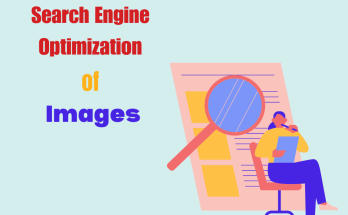The internet has revolutionized our way of living. We can order food, catch up to our friends or even learn about what is happening around the world with just a click of a button. Our lives are centered around the use of the internet and free Wi-Fi is expected whenever we visit a café, a hotel, or the airport. Recent data claims that 4.88 billion people use the internet around the world which makes up around 60% of the world’s population. Countries like France and Estonia have even pronounced internet access a basic human right. Internet service providers like Xfinity have introduced bundles so that consumers can enjoy multiple services for an affordable rate, instead of paying for each service separately which can get a bit pricey. Their Xfinity double play prices are much better and reasonable than standalone services; you pay for the internet and TV services at a time, while making use of two services. Or you can have internet and home security in a single package. Packages like these are designed for consumers to make use of affordable services.
The emergence of the coronavirus pandemic has increased our reliance on internet service. Since people couldn’t go out due to lockdowns, they would gather online for any social events or business meetings. Much of today’s political engagement also takes place online. Getting a notification for a tweet by Trump or some other important public figure has become significant for some. Even simple tasks like managing a bank account or ordering groceries online require an internet connection. There are companies like Facebook and Google who are seeking to make this a reality while exploring technologies such as drones and satellites. Mark Zuckerberg, who is the CEO of the most widely used social networking site, even believes that internet access should be available to everyone in the world.
Internet should be free!
Here is a list of five reasons why we think internet access should be free for everyone:
- There is infinite knowledge on the internet for anyone who seeks it. Instead of being constrained to the information provided by the books that we have access to, we can now look for answers to anything on the internet. Books at the libraries get restricted by financial or other means, and this restriction on information is unfair. But on the internet, information is right there for anyone to get. However, not having an internet connection can prove to be a struggle for those who don’t have the means. This is why the internet should be made free of charge since everyone gets an equal opportunity to access whatever knowledge they want.
- The Internet allows for people from all over the world to be able to engage with vibrant online communities. Anyone can connect with another from any corner of the world and be able to communicate with individuals that they would not otherwise have the chance to connect with. Being able to communicate should not be reliant on being able to pay for an internet connection, and regardless of financial status or geographical boundaries, everyone should be able to build a network of friends.
- Even though there is a telephone helpline available for those who cannot use digital services, online applications still create obstacles for those who do not have internet access. They are the ones most likely to be in need of financial support.
- As compared to those who have secure online access, those without one are deprived of opportunities such as exercising their political freedoms in the digital world, such as free speech, free assembly, or accessing the information on the internet freely. If democratic equality is to be taken seriously, then all citizens must have equal opportunities to make use of their political rights.
- Having internet access can prove to be efficient for growing economies. It will increase productivity levels, generate trillion GDP and more than a million new jobs, helping to lift many millions out of poverty.
The coronavirus pandemic has shown the deepened inequalities between those who have secure internet access and those who do not, and that calls for acceleration of building a world where everyone – both men and women – has access to the internet connection. For that to happen, it is imperative that having internet access be made a basic human right.



